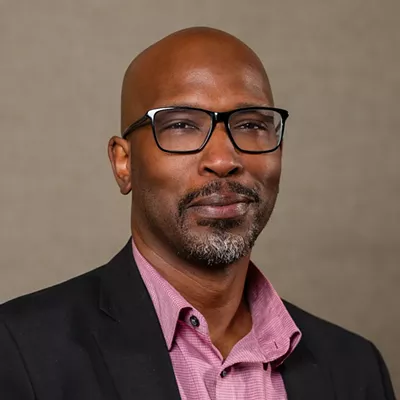By Bridget Ingebrigtsen
While perusing my company’s bookshelf for a good book to read, Patrick Lencioni’s “Getting Naked” grabbed my attention for obvious reasons. Published in 2010, I’ve heard about it but not as often as Lencioni’s other books like “Death by Meeting,” “Three Dysfunctions of a Team” and “The Advantage.” I figured that maybe it wasn’t as strong as his other books – but found out that wasn’t the case.
When I opened it, I was immediately drawn in. One thing I enjoy about Lencioni is that he knows how to tell a story, and I could tell this was going to be an interesting one.
The main character, Jack Bauer, works for a business-consulting firm called Kendrick and Black. A successful company, Kendrick and Black often competed against a local firm called Lighthouse Partners, led by a man named Michael Casey. Jack didn’t know what made Michael Casey so special and why his company won over clients. But like so many business people, he wasn’t about to admit that his competitor was better. Instead, he rationalized that the Lighthouse folks were fooling everyone and one day they would be exposed.
So Jack was surprised when he went into work one day and learned that his company had acquired Lighthouse. The strategy behind this acquisition was to eliminate the competition, not to emulate what appeared to be a winning approach to gaining and retaining business.
As if the acquisition wasn’t hard enough for Jack to swallow, he was put in charge of integrating the Lighthouse team into Kendrick and Black.
Prior to meeting the Lighthouse team, everything Jack had heard about the Lighthouse culture was unbelievable. The culture was described as a “country club.” No one worked late or worked weekends. They preferred not to take on clients that would involve travel because that would mean taking employees away from their families.
Upon meeting the Lighthouse team, Jack found out even more unbelievable information: They charged more than Kendrick and Black, paid their staff more and earned a higher profit margin. They even turned down work if they felt they had too much on their plates – something that never happened at Kendrick and Black.
Hearing all of this, Jack’s cynicism started to turn to curiosity. What were they doing that Kendrick and Black wasn’t doing? Why were the employees so happy? Why were their clients so happy? What do they do that enables them to win business time and time again?
From Jack’s observations, Lighthouse was doing everything wrong. They didn’t prepare for interviews ahead of time. Instead, they showed up and asked a lot of questions. They were at times irreverent with clients when an arguing an important point. But they were genuine about wanting to do good work for their clients, as opposed to Kendrick and Black’s constant focus on the bottom line.
When Jack tried to explain these points to the leadership team at Kendrick and Black, they didn’t understand. So Jack got one of Lighthouse’s clients on the phone – a client that recently chose Lighthouse over Kendrick and Black. Jack asked the man for his honest opinion of why he chose Lighthouse. Meanwhile the Kendrick and Black folks were cringing at what Jack was doing, but Jack decided to stick his neck out and be vulnerable – Why did you choose Lighthouse over Kendrick and Black?
The man responded, “It just felt like you guys were going to tell us how to run our business, and you were trying to convince us that you knew more than us … and you were telling us all the things that you would do for us if we hired you.”
Lighthouse, on the other hand, “didn’t come with any answers … they had suggestions, but admitted they might not be right … it felt like there were more interested in helping us figure out our problems than they were in closing the deal.” They were “consulting” instead of “selling.”
The way Jack saw it, the Lighthouse people didn’t fall victim to the three fears that sabotage client loyalty:
Fear of losing the business. Jack said it best here when talking about Lighthouse’s approach: “It’s not that they go out of their way to tick off their clients. It’s just that they’re so focused on saying and doing whatever is in the best interests of those clients that they stop worrying about the repercussions. They make themselves completely vulnerable, or naked, and don’t try to protect themselves.”
Fear of being embarrassed. This involves asking dumb questions and throwing out dumb suggestions. One Lighthouse employee even asked executives from the San Francisco 49ers football team, “Who is Jerry Rice?” Everyone laughed … and then moved on. Most people would sit and wonder who Jerry Rice is, and then completely miss the point of why his name is crucial to the conversation.
Fear of feeling inferior. “The fear of being embarrassed or looking stupid is about taking an intellectual risk,” Jack told his counterparts. “It’s about the pride of not wanting to be wrong. The fear of feeling inferior is more about humility as a person, not needing to be the center of attention. Even taking on the role of subservience to a client.”
The book has an interesting twist at the end, and I won’t spoil it, but I will tell you that it reinforces the importance of a company having strong values and then hiring people who embody those values.
There is a lot of valuable information that I wasn’t able to fit into my review here so I hope you take the time to read it. It’s a breezy read – 220 pages – and I got through it in one afternoon. When you’re finished, you can think about how you can start to “get naked” – in the professional sense, of course.
Bridget Ingebrigtsen is a marketing professional and an avid reader from Springfield.









